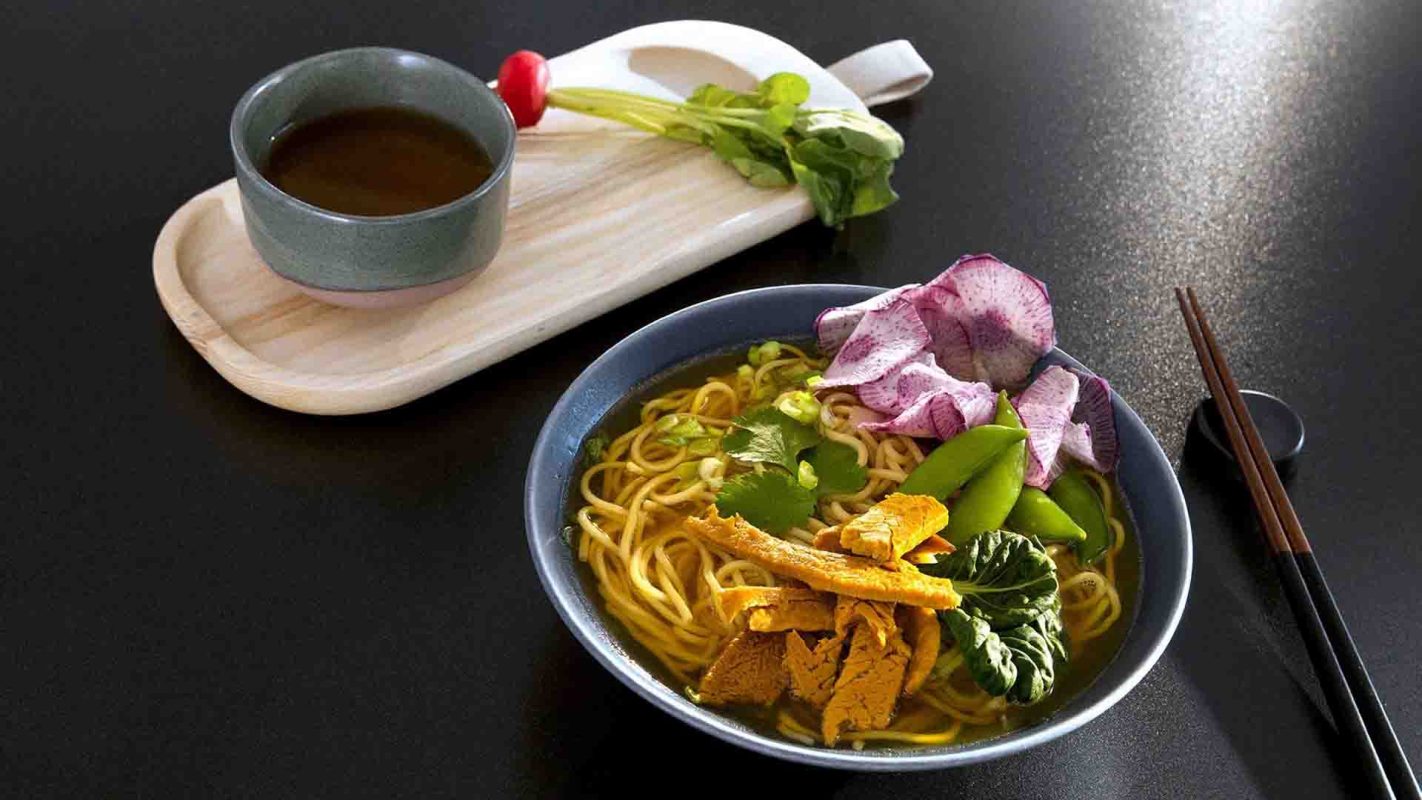Move over, hamburger. Finnish food scientists have developed an alternative protein produced from just dirt, electricity, and air.
Solein, a mildly flavored yellow powder that can be added to food, could be a viable replacement for animal protein, says Finland-based Solar Foods.
Here's how it works: Scientists gather soil to cultivate a suitable microbe, which is placed in a bioreactor where fermentation occurs. The microorganism consumes dissolved hydrogen, and carbon dioxide is split from water using electricity.
Then, the food scientists enrich it with mineral nutrients to help it make amino acids, carbohydrates, lipids, and vitamins. Finally, moisture is removed to create a dry protein powder.
Solein is an answer to the carbon-intensive global food industry. Of the world's planet-warming air pollution, 30% comes from food production, including meat and plants. The global production of traditional meat-based protein, which requires raising cows, pigs, and other animals, accounts for nearly 60% of all food production pollution.
One way our food system contributes to warming up the planet is through the destruction of forests worldwide to make way for animal grazing — in fact, livestock like cows take up 40% of habitable land on our planet.
According to the UN's Food and Agricultural Organization, about 14% of global air pollution comes from meat and dairy production. Beef is by far the worst when it comes to carbon footprint, accounting for a quarter of all carbon produced in the food industry.
And it's only slated to get worse. The United Nations estimates that food production would have to increase by 70% by the middle of the century to account for the increasing population.
In recent years, many variations of non-animal protein have hit the market to try to tackle this problem. Impossible produces plant-based products that mimic the texture and taste of ground beef, chicken, and pork and can be found in a number of retailers including Target, Safeway, and Walmart, as well as in restaurants like Burger King, which features the Impossible Whopper on its menu.
However, even Impossible protein depends on the production of natural resources like soy, which needs land and water to grow. All Solein needs is soil, electricity, and air. And if this electricity comes from solar or wind power, the food can be grown with virtually no planet-warming pollution.
Additionally, Solar Foods says that a transition to Solein, which necessitates significantly less space than both plant- and animal-based agriculture, could free up land that helps to remove carbon from the atmosphere. In this way, the company says, Solein could actually be carbon negative.
Consumers could see Solein on the shelves very soon, as Solar Foods is building its first commercial-scale factory outside of Helsinki. While CEO Pasi Vainikka says the company is a bit behind schedule, production may start this year.
Vainikka estimates the factory will be capable of producing more than 110 tons of the powder a year. This is enough to produce 4 to 5 million meals.
Want more? Follow The Cool Down on Instagram and join our Weekly Newsletter for cool stories and easy tips that save you money, time, and our planet.








